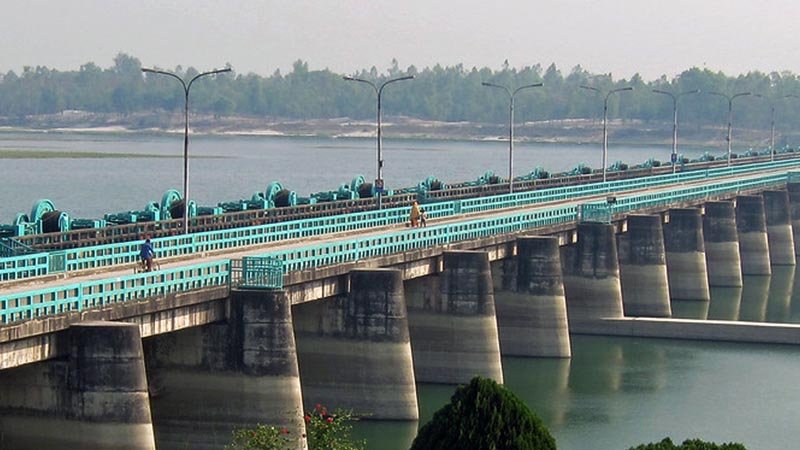Resolve Teesta water-sharing issue
Indian dailies urge Modi government

Major Indian dailies on Monday urged the Indian government to address the unresolved issue of water-sharing of Teesta and other common rivers. The dailies also described as positive the outcome of Bangladesh Prime Minister Sheikh Hasina’s latest visit to India saying it ‘marks a new chapter’ in bilateral relations.
Hindustan Times in its editorial said the issue of India’s National Register of Citizens (NRC) and India’s inability to conclude an agreement for sharing the waters of the Teesta river ‘emerged as discordant notes in the otherwise positive atmosphere’ and asked New Delhi to do more to address Dhaka’s concerns over comments by some Indian leaders that those left out of NRC in Assam will be deported.
“Anything that causes strain on what is currently India’s best partnership in the South Asian region should be swiftly nipped in the bud,” the editorial said. The Hindu editorial said Hasina’s visit “marks a new chapter between New Delhi and Dhaka.” The daily also pointed out the rivers water-sharing as an area where the two countries “have failed to make headway yet” with the “chief among them is the Teesta agreement.”
The long-pending upgrading of the Ganga-Padma barrage project, the draft framework of interim sharing agreements for six rivers — Manu, Muhuri, Khowai, Gumti, Dharla and Dudhkumar — as well as the draft framework of interim sharing agreement of the Feni river are also pending, the editorial said and added “this task must not be taken lightly between two countries that share 54 transboundary rivers, and where water management is key to prosperity, and often a source of tensions and humanitarian disasters.”
Citing growing concerns in Bangladesh over the National Register of Citizens (NRC) in Assam as “another source of tensions”, The Hindu said the Indian government “must not ignore questions Ms. Hasina raised with Mr. Modi, in New York and New Delhi.” “While Bangladesh appears to have taken at face value the explanations by Mr. Modi and the External Affairs Minister that the NRC is in its early stages, that it is a judicial process, and is at present an internal matter for India, it is worried by statements to the contrary by Home Minister Amit Shah….The divergence in the two sets of statements proffered by New Delhi will ensure the issue gets raised again and again by Dhaka, and could cast a shadow over what one Bangladesh official otherwise described as the “best of the best” of ties between two neighbours,” it said.
Hindustan Times also observed that there were several takeaways from the meeting in New Delhi between Prime Minister Narendra Modi and his Bangladeshi counterpart Sheikh Hasina and the set of decisions on connectivity and energy trade will prove beneficial for India’s north-eastern states.
It pointed to bulk import of LPG from Bangladesh, supply of drinking water from Feni for Tripura and finalization of Standard Operating Procedures for India’s use of Mongla and Chattogram ports to move goods to the region. The daily said the agreement on creating a coastal surveillance radar system for Bangladesh would bolster defence and security cooperation and help India prevent potential terror attacks from the sea.
The newspaper commented ‘the conditions are ideal for closer integration of the two economies’. The editorial in The Indian Express commented Hasina’s visit to Delhi ‘highlights the deepening bilateral relationship with Dhaka and also its important structural consequence — growing interdependence with Bangladesh’.
“India’s foreign policy can claim great success for the former — relations with Bangladesh have never been as good as they are today. They are also the best when viewed in comparison with our other neighbours,” it said. The Economic Times editorial said Hasina’s visit “marks another positive step in the relationship between India and Bangladesh” and “the two countries must build on this and move forward.”
The seven pacts and three projects that were signed and launched during the visit “illustrate the transformation of the relationship between the two countries.” According to the editorial, “it is welcome that the (Indian) government has assured Bangladesh that the National Register of Citizens will not affect Bangladesh. It is important to address specific issues like Teesta and to respond to Dhaka’s call for help on the Rohingya issue.”



